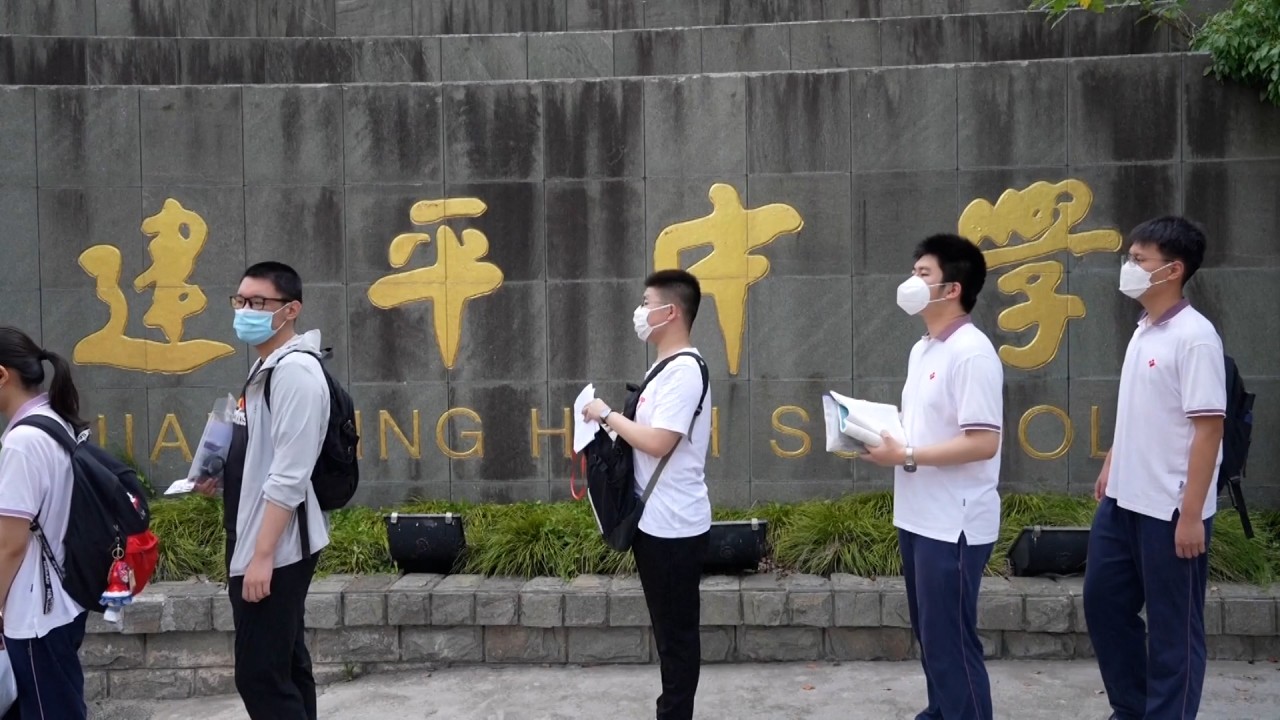
China’s ‘two sessions’ 2023: cut English exam burden on students, lawmaker urges
- NPC deputy says most people don’t use the language in work or life and its weighting for college entrance should be lowered
- The compulsory subject also raises barriers for rural test-takers who don’t have access to qualified staff, he says
National People’s Congress deputy Tuo Qingming said English was a time-consuming subject and only added to the burden on students.
“[The subject] has limited practical value for many people,” he said on the sidelines of the annual legislative meeting in Beijing.
“For a considerable number of people, learning a foreign language is only for admission to higher education. What they learn is actually exam-oriented … They will seldom or never use foreign languages in their work or life.”
Tuo, a middle school principal in Yaan, Sichuan province, said English had too much weighting in the national college entrance exam, or gaokao, a series of tests that can determine future education and job prospects.
The gaokao comprises three compulsory subjects – Chinese, mathematics and English – and three supplementary subjects either in arts or science.
Like Chinese and mathematics, English accounts for 150 points, with overall points varying with jurisdiction.
“By cutting the score to 100 points, it could reduce the share of foreign language subjects in the college entrance examination, and thereby increase the weighting of Chinese,” Tuo said.
“This could encourage young people to have more cultural self-confidence and return English to its essence as a form of communication.”
Education authorities have sought to downplay the importance of learning English in the decade since President Xi Jinping came to power.
In 2013, Beijing’s municipal education department said by 2016 it planned to cut the English points allocation in the exam from 150 to 100 points while increasing the Chinese portions from 150 to 180. However, the plan was abandoned.
Tuo also said that the emphasis on English in the exam worsened the inequality of urban and rural education, creating higher barriers for students in regional areas to alter their future.
He said that in cities, primary schools and even kindergartens had trained foreign language teachers, while many rural schools struggled to hire qualified staff.
“Under the circumstances, the higher the foreign language score in the college entrance examination, the more it works against students in less-developed areas, especially rural areas,” he said.
To narrow the gap, Tuo suggested improving educational resources in rural areas, and setting up remote learning and one-on-one exchange programmes with urban schools.
He also said English classes should prioritise verbal skills over grammar tests, develop students’ interest in English and build their confidence to nurture them for the global stage.
Last week, Chen Zhiwei, Shanghai New Epoch Education Group chairman and a member of the Chinese People’s Political Consultative Conference, suggested English should be removed as a core subject in primary and middle schools.
Chen also said it should not be compulsory for the gaokao, arguing that English studies should focus on intercommunication skills instead of rote learning.



